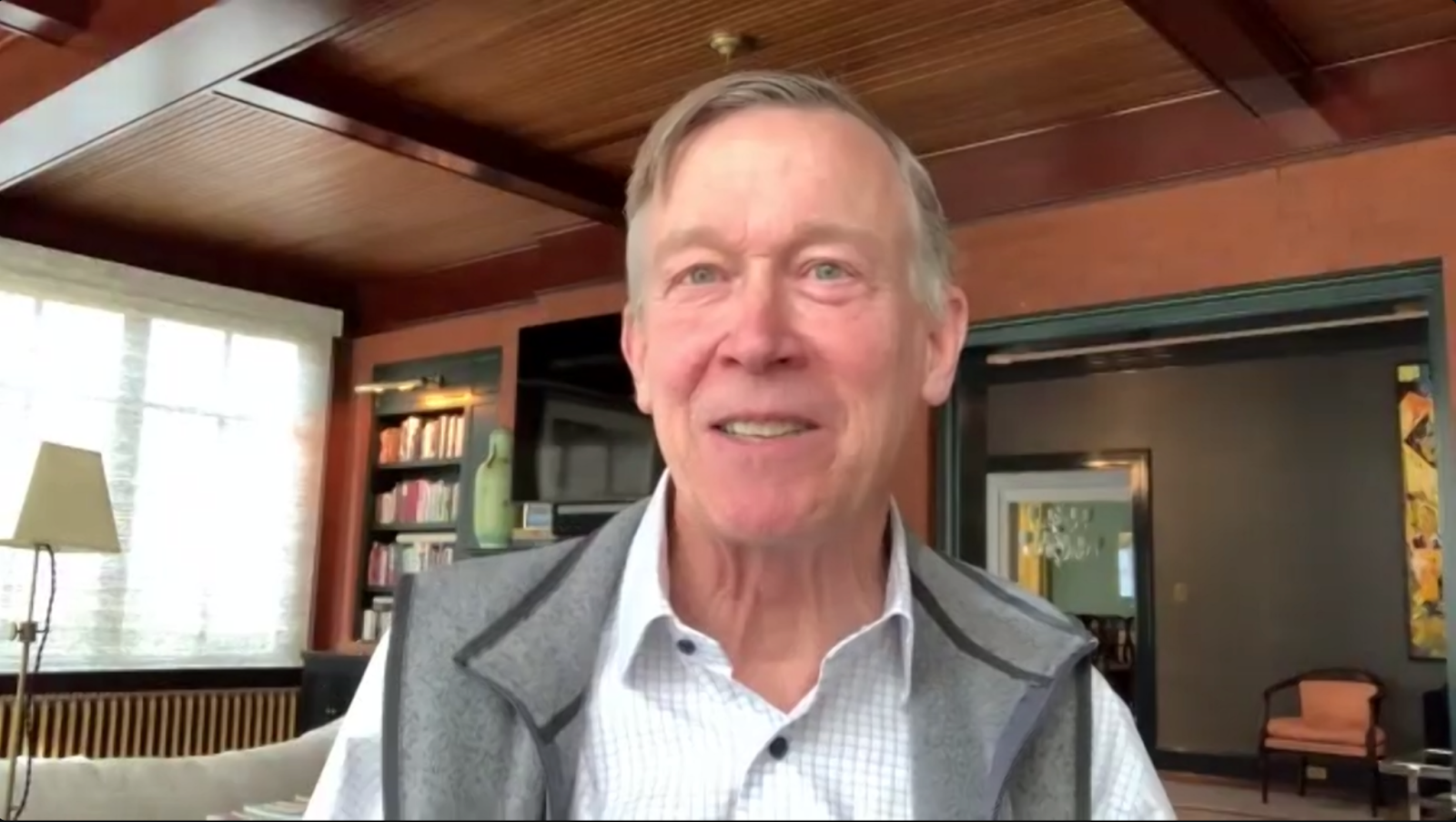Senator John Hickenlooper (D-CO) spoke via Zoom on the importance of revitalizing American democracy at a Democracy Day event hosted by Stanford in Government (SIG).
Hickenlooper, who was previously a geologist, a brewpub owner and the mayor of Denver, Co. before running for senator, said his previous experiences showed him the importance of reaching across the aisle to develop policies and the importance of educating voters on political issues.
“When you get to the complexity levels of what we’re going to have to address for climate change, for universal health care… for some of the solutions, I think we all agree we’re gonna have to get much better at democracy. So today’s an important day for that,” Hickenlooper said.
Divya Ganesan ’25, co-director of Special Events for SIG, said that organizers invited Hickenlooper due to his breadth of experience. Ganesan praised the senator for “dedicating his career to public service after focusing on people” and believed he “could galvanize people based on a genuine love for public service.”
Hickenlooper encouraged the audience to pursue careers in public service, describing them as “the hope of the future.”
He said American democracy was fragile and encouraged a respect for democratic process. Democracy “is the most fragile form of government, but it’s also the best form of government,” Hickenlooper said. “You gotta make sure that if it’s going to work, when you lose an election, you agree to lose … you transition into a new administration in a peaceable way.”
He stressed the importance of education on political issues and the role of social media in delivering factual information. “We as a society have to come to grips with, how do we figure out what the truth is? What are the sources of honest, reliable facts that we can all use to make our decisions about policy and government decisions going forward?” he said.
As one of the writers of a recent bipartisan infrastructure bill, Hickenlooper highlighted the importance of building bridges across the aisle. He told the audience to “try to hear and share the other side and … walk a little bit in their shoes to try and understand what their concerns are, and then figure out some way that you can accommodate those concerns as best you can.”
Hickenlooper’s advice on bipartisanship resonated with Mac Simpson ’23, who is the Stanford in Government (SIG) programming vice chair.
“I think it really stuck with me that these are all actual people. You need to treat them like that. You need to frame conversations and understand where they’re coming from to be able to get anything done,” Simpson said. “You can’t be so set in your beliefs, but you really need to kind of have a conversation person to person, which stuck with me.”
Hickenlooper said his background as a geologist and brewpub owner influenced his public service career. Several students told The Daily it was impactful to hear about Hickenlooper’s experiences before public service.
Chase Small ’23 said it was interesting to hear about Hickenlooper’s background and his work as mayor of Denver. “Government isn’t just these federal elections that get a lot of attention, but also important stuff that happens at the local level,” Small said.
Echoing Small, Christopher Maximos ’23, Stanford in Government chair, said he appreciated hearing about Hickenlooper’s background. Maximos said he hopes students who attended realized that there are several paths to public service, as Hickenlooper’s own background demonstrated.
“I think Senator Hickenlooper showed that the best public servants draw upon diverse life experiences to serve the people … and that their experiences and perspectives are uniquely beneficial to our democracy,” Maximos said.
At the end of his talk, Hickenlooper shared some advice for future public servants: “Go out there and live life.” According to the senator, gaining experience, whether as a small business owner or working for an NGO, contributes to becoming an effective decision-maker.
Ganesan said that this moment resonated with her as a college student who is “trying to figure it out.”
“I think I left with the sense that — and no matter what space I’m in, if I’m thinking about my overall Stanford community or something smaller, even like my Bhangra or South Asian community on campus — that I’m taking time to feel like I’m making fulfilling impact,” Ganesan said.
